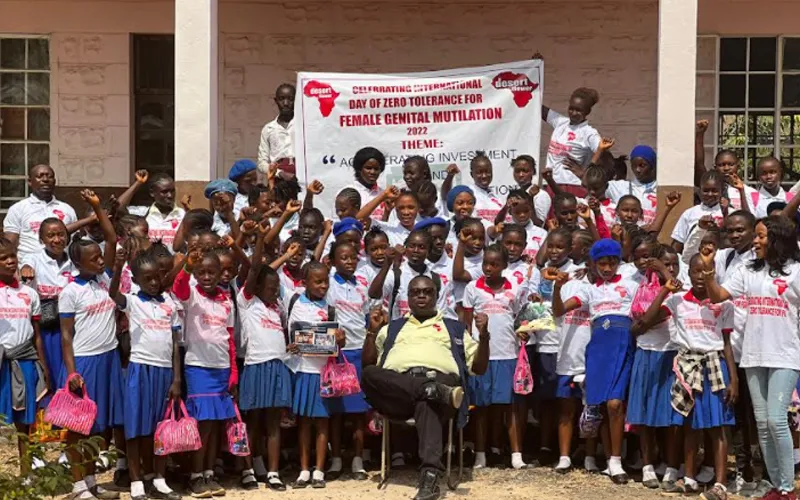Adama Sam, the School and Adolescent Health Focal Person for Ministry of Health and Sanitation in Tonkolili District in Northern Sierra Leone, noted that FGM is mostly perpetuated against children who do not give consent.
“When girls are cut, they face the immediate risk of hemorrhagic shock ranging from serious injury to infections and even death if these situations are not well managed,” the health official in Sierra Leone has been quoted as saying.
She added, “The psychological impact of FGM can be devastating and long-lasting especially on girls who mostly feel deeply betrayed by their parents who insisted they be subjected to FGM.”
The government official notes that in young children, the loss of trust and confidence that comes with FGM can lead to behavioral problems alongside psychological pain.
“As girls grow up and marry, the sexual dysfunction caused by FGM may put stress on their marriages,” she says, and adds that over the long term, FGM can leave serious psychological scars.
(Story continues below)
“Girls and women who experienced FGM may suffer anxiety, depression, and even loss of marital homes. The practice remains a grievous injury with a host of serious short- and long-term health risks for the victim,” Madam Adama Sam says in a report that was shared with ACI Africa.
The health expert expresses her gratitude to DFF-SL for the entity’s unique drive to save girls from FGM in the country and especially Magburaka.
She emphasizes the importance of the sponsorship drive the foundation is using to eradicate FGM and encourages parents and beneficiaries to make good use of the opportunity.
Information provided by Fr. Konteh describing the nature of DFF-SL indicates that the organization was founded by a group of socially committed individuals “in their pursuit of a better life for poor children and social development for the most marginal and deprived communities in Sierra Leone.”
“The purpose of Desert Flower Foundation-SL, which is ‘Save a Little Desert Flower’ is to facilitate independent living and sustainable development among the population DFF-SL serves. This is due to the high level of FGM,” reads the description of the foundation, which is said to offer education through Access, Advocating and Awareness in Sierra Leone for women and girls to be resilient.
According to the description, DFF-SL works to empower the most marginalized and deprived communities living in the rural and urban areas of Sierra Leone.
“DFF-SL emerged out of the need to address the high level of ignorance and low level of self-development capacity that affects over eighty percent of men, women and young people in Sierra Leone,” the report that Fr. Konteh shared with ACI Africa indicates.
The Catholic Priest who is the charity foundation’s President says that the entity signs sponsorship contracts with the parents of the girls enrolled in its programs.
The contract, Fr. Konteh explains, guarantees the integrity of the girls who are periodically checked by a pediatrician.
Furthermore, he says, “the girls are to attend school and the parents have the obligation to participate in educational programs and workshops organized by the foundation to help build the capacity and awareness of the parents.”
“With sponsorship from the Desert Flower Foundation, the project supports the families of the beneficiaries with monthly funds to take care of their education, medical services and school materials,” Fr. Konteh says.
Agnes Aineah is a Kenyan journalist with a background in digital and newspaper reporting. She holds a Master of Arts in Digital Journalism from the Aga Khan University, Graduate School of Media and Communications and a Bachelor's Degree in Linguistics, Media and Communications from Kenya's Moi University. Agnes currently serves as a journalist for ACI Africa.








